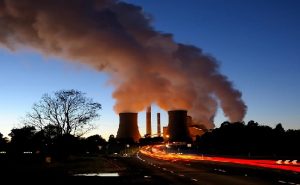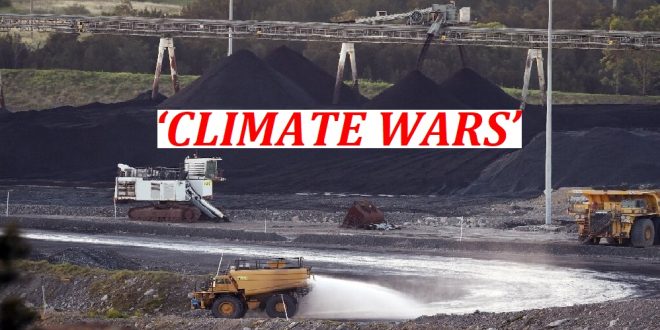31-03-2023
Bureau Report + Agencies
CANBERRA/ SYDNEY: Australia’s parliament has passed breakthrough climate laws targeting the nation’s worst polluters, forcing coal mines and oil refineries to curb emissions by about 5 percent each year.
The laws apply to 215 major industrial facilities, each producing more than 100,000 tons of greenhouse gases a year and form the backbone of Australia’s pledge to reach net zero emissions by 2050.
 Experts on Thursday said the laws signaled the end of Australia’s bitter “climate wars”, a decade of political brawling that has repeatedly derailed attempts to tackle the country’s contribution to global warming.
Experts on Thursday said the laws signaled the end of Australia’s bitter “climate wars”, a decade of political brawling that has repeatedly derailed attempts to tackle the country’s contribution to global warming.
With the new legislation, the country’s centre-left Labor government has forecast it can stop 200 million tons of carbon from being pumped into the atmosphere over the next decade.
“What the parliament has done today is safeguard our climate, safeguard our economy, and safeguard our future,” Australia’s Climate Change Minister Chris Bowen told lawmakers.
“What the parliament has done today is brought an end to 10 years of dysfunction and 10 years of delay.”
‘We have a climate policy now’
Aluminium smelters, coal mines, oil refineries and other large polluters will be forced to cut their emissions by 4.9 percent each year.
“It’s the first time greenhouse gas emissions reduction has been written into Australian law,” said University of New  South Wales sustainability expert Tommy Wiedmann. “That’s obviously a good thing. We have a climate policy now.”
South Wales sustainability expert Tommy Wiedmann. “That’s obviously a good thing. We have a climate policy now.”
In the weeks ahead of the vote, the government struck a deal on the so-called Safeguard Mechanism after engaging in high-stakes bargaining with the left-wing Greens party.
The previously sceptical Greens, whose support was needed to pass the laws, agreed to back the carbon plan after persuading the government to put a hard cap on emissions.
Greens leader Adam Bandt said the move compelled oil and gas corporations to slash their emissions “for the first time ever in law”.
Australia’s economy is fueled by mining and coal exports, and it is among the biggest emitters of carbon dioxide per capita in the world.
For years, Australia had the reputation of being a laggard on global action to stop climate change but a series of severe natural disasters helped convince the country’s leaders to take the climate emergency seriously.
 Heavy storms in 2022 caused catastrophic floods on Australia’s east coast, in which more than 20 people died.
Heavy storms in 2022 caused catastrophic floods on Australia’s east coast, in which more than 20 people died.
The “Black Summer” bushfires of 2019-2020 burned more than eight million hectares (19.7 million acres) of native vegetation, while marine heatwaves caused mass coral bleaching on the Great Barrier Reef in 2016, 2017 and 2020.
Prime Minister Anthony Albanese’s Labor government swept to power last year promising to change the pro-fossil fuel stance of the previous decade-old conservative government.
Although many praised the laws as a crucial first step, sustainability expert Wiedmann warned Australia could not rest on its laurels.
“It’s not enough on its own to reduce emissions and avoid dangerous climate change,” he said. “The hard decisions will come in the next few years.”
Murdoch University sustainability expert Martin Brueckner said the plan ended Australia’s climate “stalemate” and gave a strong signal to businesses.
 Pressmediaofindia
Pressmediaofindia




